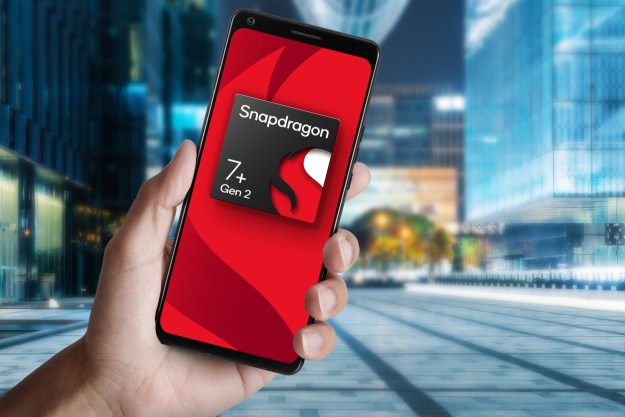
At Qualcomm’s San Diego headquarters, the company pitted a Snapdragon 835 reference device against two Snapdragon 821 devices, the Google’s Pixel XL and OnePlus OnePlus 3; the Samsung Galaxy S7 and Galaxy S7 edge, which pack Samsung’s Exynos processor; and Huawei’s Kirin 960-powered P10.
The results spoke for themselves. In Geekbench and PCMark, apps which test processor performance, the Snapdragon 835 outperformed the aging Snapdragon 821 by close to 40 percent in multithreaded tasks. In Geekbench, its single-thread performance wasn’t quite as impressive but the chip still managed to best every processor by at least 10 percent. In PCMark, it scored 10 percent higher than the Huawei P10’s Kirin 960.
Two other benchmarking apps, GFXBench GL and 3D Mark, put the 835’s Adreno 540 graphics chip, and the results were no less impressive. On average, it maintained around a 30 percent lead on the Snapdragon 821 in GFXBench GL’s suite of tests and did 30 percent better than competing graphics chips in 3DMark’s Ice Storm Unlimited test. In 3D Mark’s OpenGL ES3.0 Slingshot Unlimited, it fared better, maintaining a consistent 50 percent lead on the Snapdragon 821.
Antutu, a holistic suite that factors RAM, GPU, CPU, and storage speed into benchmarking tests, showed the 835 well ahead of the immediate competition. Web tests, which show how well the 835 handles graphics-heavy pages, told a similar story. Google’s Octane test showed a 40 percent advantage over Samsung’s Exynos processor, and 50 percent over the 821. Sunspider and Kraken, meanwhile, awarded the 835 similar wins.
There is more to the Snapdragon 835 than raw performance improvements, of course. Qualcomm’s Quick Charge 4.0, the next iteration of its rapid battery charging tech, features a 20 percent improvement in speed and a 30 percent improvement in energy efficiency. That translates to five hours of extra battery in about five minutes of charging, or 50 percent of a battery’s capacity in 15 minutes.
It also packs a wealth of protections against the sort of catastrophic heat buildup exhibited by Samsung’s Galaxy Note 7. One, the latest generation of the company’s Intelligent Negotiation for Optimum Voltage software, monitors power transfer in real time to ensure it does not exceed safe operating temperatures. Four levels of thermal protection — some at the chassis, others at the battery, and several inside the chips itself — sense the type and quality of plugged-in charging cables. New features extend the longevity of the battery — Qualcomm said it will maintain at least 80 percent of its original capacity after 500 charge cycles.
The 835 is shaping up to be Qualcomm’s best chip yet and the initial Snapdragon 835 devices are expected to in the first half of 2017.
Editors' Recommendations
- Even the new mid-tier Snapdragon X Plus beats Apple’s M3
- You won’t believe how I improved my phone’s battery life
- Qualcomm’s newest chip will bring AI to cheaper Android phones
- Qualcomm says its new chips are 4.5 times faster at AI than rivals
- Qualcomm’s Snapdragon 4 Gen 2 brings faster 5G to budget phones


